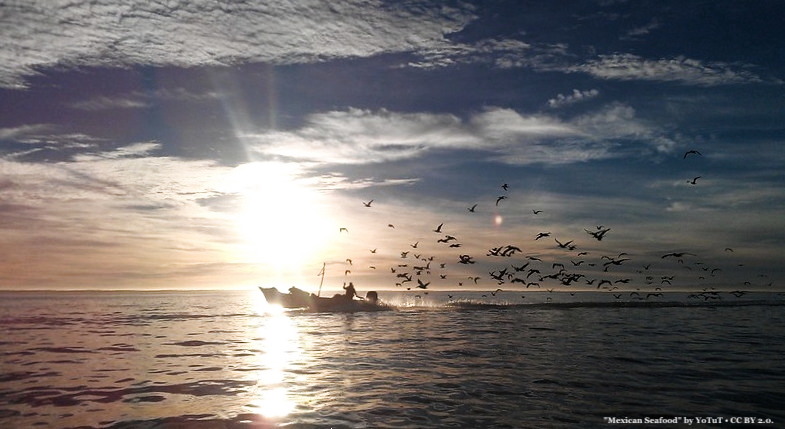The rain came down that day in angry, ruthless sheets, turning the hillsides to mud, pushing the workers’ shanties down toward the beach, toward the fancy hotels where they labored serving the tourists who now huddled at the bar, little umbrellas poking their noses, as they sipped tequila and waited out the storm. But we were not tourists. We were on assignment, sent down from the capital to audit compliance, to make sure the fishermen weren’t breaking the law.
We hired a van to take us out beyond the strip, out beyond the nightclubs and shops, beyond the cliff-divers, beyond any place vacationers might go, out to the hidden, the tucked-away, the other Acapulco.
It was sundown—though there had been no sun that day—growing dark fast when we reached the end of the road. The rain had stopped and our van stopped. “That’s it,” the driver announced. But we were nowhere: a tangle of forest, thick and dripping around us. “Take that path toward the water,” he said. “They’re waiting. They’ll find you.”
We heard the fisherman’s voice before we saw his big yellow smile, a shirtless man in short, frayed pants, his skin sun-scorched beyond brown, blending with the shadows of the jungle. He welcomed us, sweeping the stump of his half arm again and again, a grand gesture beckoning us to follow him to the clearing near the shore, to a circle of huts and lean-tos, cooking fires in the middle where women stirred boiling pots.
“Clean water,” the man said proudly. The rains had filled their barrels. I thought of the tourists back on the strip, cursing the storm. The fisherman gave me a dipper of sweet fresh water.
They served us turtle eggs and hooch. Both delicious. Both illegal. I watched as our host refilled my cup, his good arm tipping the pitcher, his half arm caressing his wife’s shoulders.
All through that night, we huddled in dampness, the dying embers our only light, the mud slick and cool beneath our feet. We listened to tales of sharks and whales, of nets claiming fingers and toes and more: how they worked midnight to sunrise, then loaded the best of their catch into trucks headed for the city, for the tourists, to grace the menu as the catch of the day.
All through the night, children slept on their mothers’ laps or at their feet, covered by hems of ragged skirts, stirring when our laughter invaded their dreams, then snuggling again, settling deeper into comfort.
“It’s a good life,” the man with the stump assured us.
A good life. Our report could change that. Or not.
The skiffs bobbed at the shore, the surf gently slapping and rocking. The night sky cleared. Stars burned through the trees. An owl sang out and soared. The fishermen sang and laughed. And we laughed with them.

